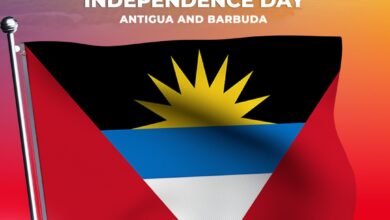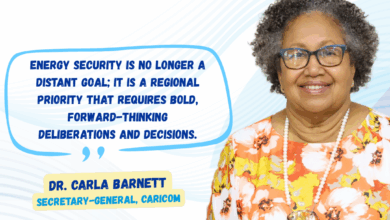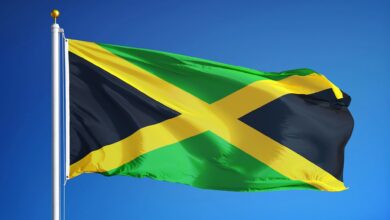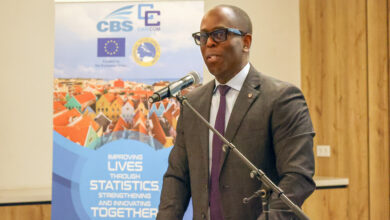Message delivered on behalf of Dr Rosina Wiltshire CARICOM Gender Advocate At the Caribbean Artists Uniting against Gender Based Violence Workshop, 18 July 2011, Paramaribo, Suriname
Let me first congratulate the artistes present for committing to use your talents to make the world a better place for all. This is what you accomplish when you speak up against gender based violence. You join a number of distinguished artistes in the region who have agreed to serve as advocates and innovators to engage youth and use their presence and art locally and internationally, to inform audiences to end gender based violence
Gender based violence is violence that is directed against a person on the basis of sex. It includes acts that inflict physical, mental, emotional or sexual harm or suffering, threats of such acts, coercion and other deprivations of liberty. While women, girls, men and boys can be victims of gender based violence, women and girls are the main victims. Gender-based violence (GBV) reflects and reinforces inequalities between men and women and compromises the health, dignity, security and autonomy of its victims. The levels of violence tend to be very high in indigenous communities.
According to the latest Crime Trends Survey, all countries in the Caribbean for which data were available experienced rape rates that were among the highest in the world. While the global average of reported rapes was reflected as 15 per 100,000, the Bahamas topped the world average with 133, the next Caribbean country was St Vincent and the Grenadines with 112, followed by Jamaica with a rate of 51.
GBV impairs or nullifies the enjoyment by women of human rights and fundamental freedoms under general international law or under human rights conventions.” It also contravenes the national laws of the region. The ripple effects of violence commence with the victim, radiate outwards to families and the wider society adding to the burdens of the health care and judicial systems. The loss of productivity incurred ultimately has repercussions on the GDP. Gender based violence stands out as a systemic and systematic violation of human rights and as an obstacle to economic, social and democratic development in all countries. Violence in the home is also the seed bed for societal violence. The gains of the Caribbean are being systematically threatened by the growing levels of violence in the region. If we wish to curb the growing insecurity in the region we have to address the problem at its root.
Public education, advocacy, extension of services and law reform has served not only to make visible the issue of GBV but also to prevent and respond to GBV. Despite the tremendous achievements in making violence against women visible through the work of the women’s movement, and legislative and institutional reform violence against women and children appears to be on the rise (like all types of violence), or rather, it has not abated in a manner proportionate to the levels of mobilisation in women’s organisations and state action. In some instances, legislative and regulatory frameworks have not kept pace with social changes such as the emergent forms of violence for example, cyber-violence. You artistes hold a key, which used wisely can make a fundamental difference.
In addition to the high prevalence, there is a culture of normalcy. There is no outrage in communities, and the legal system is complicit. Only 1% of reported rapes in Guyana and 3% in Trinidad and Tobago result in convictions. Furthermore, it is important to note that a high percentage of rapes is not reported.
This culture of normalcy has been reinforced by too many unconscious artistes. Too many popular artistes often project women as objects, and violence as an expression of power. You would have a keen knowledge of the many popular songs which degrade our women and perpetuate the traditions and attitudes of slavery. In slavery sex was often a violent and commercial act with enslaved males used as studs to impregnate women for sale of their children. Women’s bodies were the property of all and the status of the enslaved male often came from stud status and number of children produced. Those coming as indentured workers did not escape the brutality and the impacts of the prevailing attitudes and laws. Bob Marley’s call to emancipate ourselves from mental slavery is as urgent today as when he first sang that song.
In an effort to address the challenge, UN Women launched the UN Secretary General’s UNITE campaign calling on all partners government and civil society to work in partnership to end the scourge of violence against women. In October of 2009 they organised a consultation with civil society organizations and state representatives on the UNITE campaign. In April of 2010 UN Women invited leading artistes from the OECS and Trinidad and Tobago to a consultation in support of the campaign. Out of that consultation was born an important partnership and commitment from leading artistes from those countries to make their voices heard in their support of the UNITE goals. Eliminating GBV is consistent with one of the thematic priorities of UN Women namely, reducing violence against women and is also one of the priority areas emanating from the Caribbean Priorities for Beijing+ 5.
The CARICOM Secretariat in collaboration with UN Women is working to support the objectives of reducing and ending violence against women and taking the partnership forward.
All CARICOM Member States are party to CEDAW (Convention on the Elimination of all Forms of Discrimination Against Women) and consensus documents such as the Beijing Platform for Action (BPfA), the Millennium Development Goals (MDGs). Further, the CARICOM Charter of Civil Society notes, those women have the right to legal protection including just and effective remedies against domestic violence, sexual abuse and sexual harassment.
The CARICOM Secretariat also has a Memorandum of Understanding (MOU) with UN Women which outlines mutual collaboration in the prioritization of work which supports especially discriminated and excluded groups of women and are both committed to building the capacities of these women to ensure that their priorities are included in policies, programmes and budgets.
The CARICOM Secretariat is currently working with the concept of Edutainment, which is a tool to inform the public or audience by integrating important messages in a familiar or popular type of entertainment, such as television programmes, music, theatre, dance, movies, website, computer and video games. At the Twenty-Seventh Meeting of the Conference of Heads of Government of CARICOM held in St. Kitts and Nevis in July 2006 the Lead Head for Culture, Youth, Sport and Gender Affairs in the CARICOM Quasi-Cabinet made the recommendation that the tool of Edutainment should be more widely developed and promoted as a tool for advocacy and behaviour change, especially among youth. Since then, the Secretariat has undertaken two major edutainment initiatives. These include:
• A Caribbean HIV and AIDS Edutainment Project funded by the World Bank in 2007-2008 under PANCAP (Pan Caribbean Partnership Against HIV/AIDS). The project focused on reducing HIV and AIDS related stigma and discrimination and promoting Voluntary Counseling and Testing (VCT) through the use of the Visual and Performing Arts. The main deliverable was an edutainment kit which included information sheets, an edutainment theatre piece and the Caribbean Media Award winning films Wan Lobi Tori (A Love Story) and Sma Mofo (Gossip) related to HIV and AIDS.
• Under support from the 9th EDF/ Caribbean Integration support Programme, the Secretariat has also built the capacity of youth working in primary drug prevention to use edutainment to refine drug prevention messages as well as make it relevant and appropriate to young people including those from indigenous communities.
CARICOM has recently appointed an Advocate for Gender Justice which is supported under CARICOM-Spain Cooperation Agreement and by UNIFEM. As CARICOM Advocate for Gender Justice, my mandate is to influence policy development on GBV in the Caribbean through advocacy and knowledge provision. This involves:
Coordinating action research using local consultants on specific areas of GBV in various CARICOM Member States aimed at catalysing and influencing policy and programmatic actions; Recommending ways and means to prevent GBV and remedy its consequences by way of development or enhancement of policies for the promotion and protection of the rights of women and access to justice for survivors of violence and the general harmonization of national legislation and international normative frameworks on the non-discrimination and equality; Engaging in awareness raising and sensitisation; Encouraging the participation of women and girls and men and boys as agents of change; and Collaborating, where required, with relevant actors responsible for the promotion and protection of the rights of women internationally, regionally and nationally, including actors such you present here.
As part of the research we have focused on young men and women’s understanding of masculinity. We have conducted the research in several countries including Guyana, Suriname and Belize represented here. Interviews were conducted in high schools in different sectors of each country as well as with focus groups. The data are still being analysed, but it is clear from the preliminary results that we have a lot of work to do.
I have heard artists saying that they are just singing a song, or speaking their poetry and it is just words. We all know better. Many of you may be aware of the impact that a popular Jamaican artist had on the dramatic rise in the sale of Clarke shoes. In his song he refers to Clarke shoes and the company suddenly found a dramatic rise in the brand Clarke shoes. That is the power of your voice. You are important partners in making a difference. When gender based violence is reduced or ended everyone benefits. Welcome to those who are committed to making a positive impact on the lives of women, men and children in your societies.
I thank you





